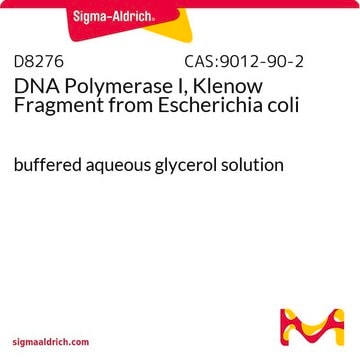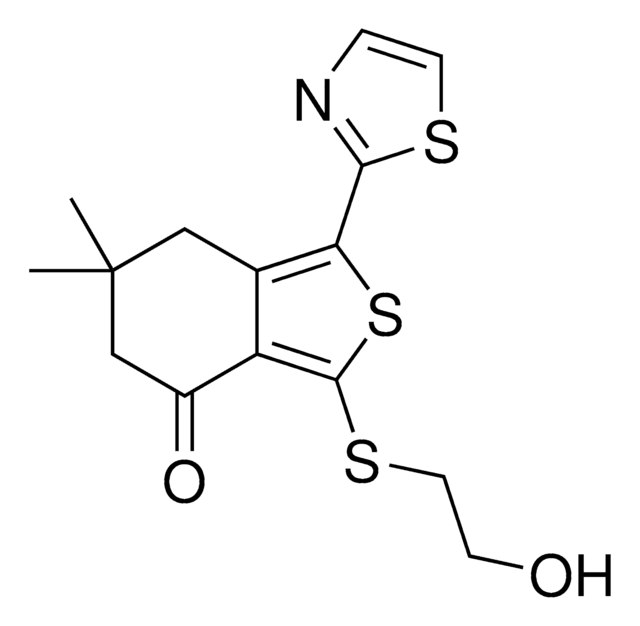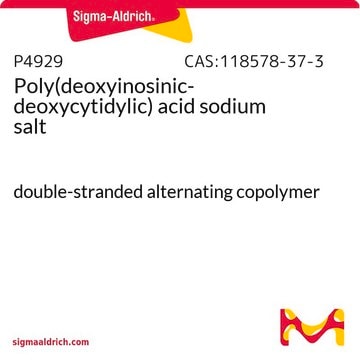KEM0031
Klenow Fragment
Ultra-pure enzyme for nucleic acid modifications
About This Item
Produtos recomendados
grau
for molecular biology
Ensaio
>99% (SDS-PAGE)
Formulário
buffered aqueous solution
atividade específica
5,000 U/mg
concentração
5,000 U/mL
Condições de expedição
dry ice
temperatura de armazenamento
−20°C
Descrição geral
Aplicação
- DNA blunting by fill-in of 5′ overhang
- Second strand cDNA synthesis
- Sequencing
- Site-specific mutagenesis
Características e benefícios
- Ultra-purification process for ultimate enzyme performance
- Highest quality specifications for ultimate product consistency
- Undetectable DNA and nuclease contamination
Componentes
Definição da unidade
forma física
Outras notas
produto relacionado
Código de classe de armazenamento
10 - Combustible liquids
Escolha uma das versões mais recentes:
Certificados de análise (COA)
Não está vendo a versão correta?
Se precisar de uma versão específica, você pode procurar um certificado específico pelo número do lote ou da remessa.
Já possui este produto?
Encontre a documentação dos produtos que você adquiriu recentemente na biblioteca de documentos.
Nossa equipe de cientistas tem experiência em todas as áreas de pesquisa, incluindo Life Sciences, ciência de materiais, síntese química, cromatografia, química analítica e muitas outras.
Entre em contato com a assistência técnica







